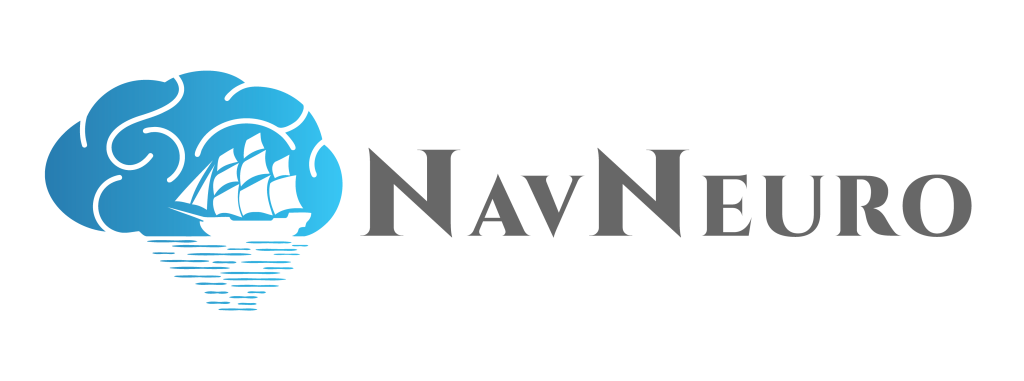
Lucette Cysique, PhD
Instructor Credentials
Dr. Lucette Cysique is an Associate Professor and Neuropsychologist at the University of New South Wales in Sydney, Australia. She is a cross-disciplinary neuropsychologist with extensive neuroimaging training and long-term experience with neuro-viral and immune biomarkers. She leads a research program into the neurocognitive complications in major infectious diseases (COVID-19, HIV) and their main comorbidities: brain pathological ageing, cardiovascular diseases, and depressive disorders. Her appointment in the Viral Immunology Systems Program at the Kirby Institute involves the overseeing the Australian Partnership for Preparedness Research on Infectious Disease Emergencies (APPRISE) Long COVID Initiative. Working in global epidemies, Dr. Cysique has extensive experience in cross-cultural neuropsychology. Dr. Cysique has held major international and national research responsibilities, with associated funding. She has led the research on more than 40 national and international cohort studies/trials as a neuropsychology or neuroimaging leader. She served as Chair of the NeuroCOVID International Neuropsychological Society (INS) Special Interest Group (SIG).
Disclosure(s)
Dr. Cysique receives salary and grant funding from APPRISE/ Australian DoHAC, UNSW Australia and the Kirby Institute, University of Melbourne.
Learning Objectives
Following this activity, participants will be able to:
- Describe proposed biological mechanisms through which long COVID can impact brain health and cognitive functioning.
- List and discuss the most common clinical symptoms experienced by patients with long COVID.
- Apply the information from this episode in chart reviews, clinical interviewing, test selection, feedback sessions, and treatment recommendations in patients with long COVID and their families.
Course Information
| Target Audience | Introductory |
| Credit Hours | 1.5 hours |
| Cost & Refund Policy | INS Members: $30 Non-Members: $45 Refund Policy: This podcast is not eligible for refunds. Users will have two attempts to pass the quiz. If they do not pass, they may re-purchase the test and try again. |
| Availability | November 4, 2024 Note: The CE course for this podcast will be released on this date. You may obtain CE credit for this podcast at any time after it is released. Content will be retired approximately 3 years after the live date. |
References
- Altmann, D. M., Whettlock, E. M., Liu, S., Arachchillage, D. J., & Boyton, R. J. (2023). The immunology of long COVID. Nature Reviews. Immunology, 23(10), 618–634. https://doi.org/10.1038/s41577-023-00904-7
Ariza, M., Cano, N., Segura, B., Adan, A., Bargalló, N., Caldú, X., Campabadal, A., Jurado, M. A., Mataró, M., Pueyo, R., Sala-Llonch, R., Barrué, C., Bejar, J., Cortés, C. U., Junqué, C., & Garolera, M. (2022). Neuropsychological impairment in post-COVID condition individuals with and without cognitive complaints. Frontiers in Aging Neuroscience, 14. https://doi.org/10.3389/fnagi.2022.1029842
Ariza, M., Cano, N., Segura, B., Bejar, J., Barrué, C., Cortés, C. U., Junqué, C., & Garolera, M. (2023). Cognitive and emotional predictors of quality of life and functioning after COVID‐19. Annals of Clinical and Translational Neurology, 11(2), 302–320. https://doi.org/10.1002/acn3.51952
Austin, T. A., Thomas, M. L., Lu, M., Hodges, C. B., Darowski, E. S., Bergmans, R., Parr, S., Pickell, D., Catazaro, M., Lantrip, C., & Twamley, E. W. (2024). Meta-analysis of Cognitive Function Following Non-severe SARS-CoV-2 Infection. Neuropsychology Review. https://doi.org/10.1007/s11065-024-09642-6
Azcue, N., Gómez-Esteban, J. C., Acera, M., Tijero, B., Fernandez, T., Ayo-Mentxakatorre, N., Pérez-Concha, T., Murueta-Goyena, A., Lafuente, J. V., Prada, Á., De Munain, A. L., Ruiz-Irastorza, G., Ribacoba, L., Gabilondo, I., & Del Pino, R. (2022). Brain fog of post-COVID-19 condition and Chronic Fatigue Syndrome, same medical disorder? Journal of Translational Medicine, 20(1). https://doi.org/10.1186/s12967-022-03764-2
Bezerra, C. C., Toledo, N. D. N., Brucki, S. M. D., & Souza-Talarico, J. N. (2023). COVID-19 and Cognitive and Mental Health During Post-Infection Phase: A Study Among Middle-Aged and Older Indigenous Adults From Brazilian Amazons. the Journals of Gerontology. Series B, Psychological Sciences and Social Sciences, 79(3). https://doi.org/10.1093/geronb/gbad197
Bland, A. R., Barraclough, M., Trender, W. R., Mehta, M. A., Hellyer, P. J., Hampshire, A., Penner, I. K., Elliott, R., & Harenwall, S. (2024). Profiles of objective and subjective cognitive function in Post-COVID Syndrome, COVID-19 recovered, and COVID-19 naïve individuals. Scientific Reports, 14(1). https://doi.org/10.1038/s41598-024-62050-x
Bonfim, L. P. F., Correa, T. R., Freire, B. C. C., Pedroso, T. M., Pereira, D. N., Fernandes, T. B., Kopittke, L., De Oliveira, C. R. A., Teixeira, A. L., & Marcolino, M. S. (2024). Post-COVID-19 cognitive symptoms in patients assisted by a teleassistance service: a retrospective cohort study. Frontiers in Public Health, 12. https://doi.org/10.3389/fpubh.2024.1282067
Bonner-Jackson, A., Vangal, R., Li, Y., Thompson, N., Chakrabarti, S., & Krishnan, K. (2024). Factors Associated with Cognitive Impairment in Patients with Persisting Sequelae of COVID-19. the American Journal of Medicine. https://doi.org/10.1016/j.amjmed.2024.01.021
Burmester, B., Leathem, J., & Merrick, P. (2016). Subjective Cognitive Complaints and Objective Cognitive Function in Aging: A Systematic Review and Meta-Analysis of Recent Cross-Sectional Findings. Neuropsychology Review, 26(4), 376–393. https://doi.org/10.1007/s11065-016-9332-2
Butler, J., Lawson, R. A., Ling, J., Paddick, S., Parra‐Rodriguez, M. A., Hodgetts, S., Taylor, J., & Watermeyer, T. J. (2023). Predictors of subjective and objective cognitive performance examined in an online sample of adults with and without prior COVID‐19 infection. Alzheimer’s & Dementia, 19(S22). https://doi.org/10.1002/alz.079805
Calabria, M., García-Sánchez, C., Grunden, N., Pons, C., Arroyo, J. A., Gómez-Anson, B., Del Carmen Estévez García, M., Belvís, R., Morollón, N., Igual, J. V., Mur, I., Pomar, V., & Domingo, P. (2022). Post-COVID-19 fatigue: the contribution of cognitive and neuropsychiatric symptoms. Journal of Neurology, 269(8), 3990–3999. https://doi.org/10.1007/s00415-022-11141-8
Carnes-Vendrell, A., Piñol-Ripoll, G., Ariza, M., Cano, N., Segura, B., Junque, C., Béjar, J., Barrue, C., & Garolera, M. (2024). Poor sleep quality may trigger cognitive deficits after recovery from COVID-19. Frontiers in Psychology, 15. https://doi.org/10.3389/fpsyg.2024.1382875
Carnes-Vendrell, A., Piñol-Ripoll, G., Ariza, M., Cano, N., Segura, B., Junque, C., Béjar, J., Barrue, C., Garolera, M., Arauzo, V., Bernia, J. A., Balague-Marmaña, M., Valles-Pauls, B., Gonzalez-Aguado, E., Tayó-Juli, C., Forcadell-Ferreres, E., Reverte-Vilarroya, S., Forné, S., Bartes-Plans, A., . . . Navarro, S. (2023). Sleep quality in individuals with post-COVID-19 condition: Relation with emotional, cognitive and functional variables. Brain, Behavior, & Immunity. Health, 100721. https://doi.org/10.1016/j.bbih.2023.100721
Chou, R., Herman, E., Ahmed, A., Anderson, J., Selph, S., Dana, T., Williams, L., & Ivlev, I. (2024). Long COVID Definitions and Models of Care. Annals of Internal Medicine. https://doi.org/10.7326/m24-0677
Crumley, J. J., Stetler, C. A., & Horhota, M. (2014). Examining the relationship between subjective and objective memory performance in older adults: A meta-analysis. Psychology and Aging, 29(2), 250–263. https://doi.org/10.1037/a0035908
Cysique, L. A., Jakabek, D., Bracken, S. G., Allen‐Davidian, Y., Heng, B., Chow, S., Dehhaghi, M., Pires, A. S., Darley, D. R., Byrne, A., Phetsouphanh, C., Kelleher, A., Dore, G. J., Matthews, G. V., Guillemin, G. J., & Brew, B. J. (2023). The kynurenine pathway relates to post‐acute COVID‐19 objective cognitive impairment and PASC. Annals of Clinical and Translational Neurology, 10(8), 1338–1352. https://doi.org/10.1002/acn3.51825
Cysique, L. A., Łojek, E., Cheung, T. C. K., Cullen, B., Egbert, A. R., Evans, J., … & Zouhar, I. (2022). Assessment of neurocognitive functions, olfaction, taste, mental, and psychosocial health in COVID-19 in adults: Recommendations for harmonization of research and implications for clinical practice. Journal of the International Neuropsychological Society, 28(6), 642-660.
Davis, H. E., Assaf, G. S., McCorkell, L., Wei, H., Low, R. J., Re’em, Y., Redfield, S. A., Austin, J. P., & Akrami, A. (2021). Characterizing long COVID in an international cohort: 7 months of symptoms and their impact. EClinicalMedicine, 38, 101019. https://doi.org/10.1016/j.eclinm.2021.101019
Delgado‐Alonso, C., Díez‐Cirarda, M., Pagán, J., Pérez‐Izquierdo, C., Oliver‐Mas, S., Fernández‐Romero, L., Martínez‐Petit, L., Valles‐Salgado, M., Gil‐Moreno, M. J., Yus, M., Matías‐Guiu, J., Ayala, J. L., & Matias‐Guiu, J. A. (2023). Unraveling brain fog in post‐COVID syndrome: Relationship between subjective cognitive complaints and cognitive function, fatigue, and neuropsychiatric symptoms. European Journal of Neurology. https://doi.org/10.1111/ene.16084
Fanshawe, J. B., Sargent, B. F., Badenoch, J. B., Saini, A., Watson, C. J., Pokrovskaya, A., Aniwattanapong, D., Conti, I., Nye, C., Burchill, E., Hussain, Z. U., Said, K., Kuhoga, E., Tharmaratnam, K., Pendered, S., Mbwele, B., Taquet, M., Wood, G. K., Rogers, J. P., . . . Leek, C. E. (2024). Cognitive domains affected post‐COVID‐19; a systematic review and meta‐analysis. European Journal of Neurology. https://doi.org/10.1111/ene.16181
Fontes-Dantas, F. L., Fernandes, G. G., Gutman, E. G., De Lima, E. V., Antonio, L. S., Hammerle, M. B., Mota-Araujo, H. P., Colodeti, L. C., Araújo, S. M., Froz, G. M., Da Silva, T. N., Duarte, L. A., Salvio, A. L., Pires, K. L., Leon, L. A., Vasconcelos, C. C. F., Romão, L., Savio, L. E. B., Silva, J. L., . . . Figueiredo, C. P. (2023). SARS-CoV-2 Spike protein induces TLR4-mediated long-term cognitive dysfunction recapitulating post-COVID-19 syndrome in mice. Cell Reports, 42(3), 112189. https://doi.org/10.1016/j.celrep.2023.112189
Franks, K. H., Rowsthorn, E., Bransby, L., Lim, Y. Y., Chong, T. T. J., & Pase, M. P. (2022). Association of Self-Reported Psychological Stress with Cognitive Decline: A Systematic Review. Neuropsychology Review, 33(4), 856–870. https://doi.org/10.1007/s11065-022-09567-y
Fry, L., Logemann, A., Waldron, E., Holker, E., Porter, J., Eskridge, C., Naini, S., Basso, M. R., Taylor, S. E., Melnik, T., & Whiteside, D. M. (2023). Emotional functioning in long COVID: Comparison to post-concussion syndrome using the Personality Assessment Inventory. the Clinical Neuropsychologist/Neuropsychology, Development, and Cognition. Section D, the Clinical Neuropsychologist, 1–21. https://doi.org/10.1080/13854046.2023.2264546
Gloeckl, R., Leitl, D., Schneeberger, T., Jarosch, I., & Koczulla, A. R. (2023). Rehabilitative interventions in patients with persistent post COVID-19 symptoms—a review of recent advances and future perspectives. European Archives of Psychiatry and Clinical Neuroscience. https://doi.org/10.1007/s00406-023-01631-9
Greene, C., Connolly, R., Brennan, D., Laffan, A., O’Keeffe, E., Zaporojan, L., O’Callaghan, J., Thomson, B., Connolly, E., Argue, R., Meaney, J. F. M., Martin-Loeches, I., Long, A., Cheallaigh, C. N., Conlon, N., Doherty, C. P., & Campbell, M. (2024). Blood–brain barrier disruption and sustained systemic inflammation in individuals with long COVID-associated cognitive impairment. Nature Neuroscience, 27(3), 421–432. https://doi.org/10.1038/s41593-024-01576-9
Gutman, E. G., Salvio, A. L., Fernandes, R. A., Duarte, L. A., Raposo-Vedovi, J. V., Alcaraz, H. F., Teixeira, M. A., Passos, G. F., De Medeiros, K. Q. M., Hammerle, M. B., Pires, K. L., Vasconcelos, C. C. F., Leon, L. a. A., Figueiredo, C. P., & Alves-Leon, S. V. (2024b). Long COVID: plasma levels of neurofilament light chain in mild COVID-19 patients with neurocognitive symptoms. Molecular Psychiatry. https://doi.org/10.1038/s41380-024-02554-0
Hampshire, A., Azor, A., Atchison, C., Trender, W., Hellyer, P. J., Giunchiglia, V., Husain, M., Cooke, G. S., Cooper, E., Lound, A., Donnelly, C. A., Chadeau-Hyam, M., Ward, H., & Elliott, P. (2024). Cognition and Memory after Covid-19 in a Large Community Sample. New England Journal of Medicine/the New England Journal of Medicine, 390(9), 806–818. https://doi.org/10.1056/nejmoa2311330
Hampshire, A., Trender, W., Chamberlain, S. R., Jolly, A. E., Grant, J. E., Patrick, F., Mazibuko, N., Williams, S. C., Barnby, J. M., Hellyer, P., & Mehta, M. A. (2021). Cognitive deficits in people who have recovered from COVID-19. EClinicalMedicine, 39, 101044. https://doi.org/10.1016/j.eclinm.2021.101044
Hartung, T. J., Bahmer, T., Chaplinskaya-Sobol, I., Deckert, J., Endres, M., Franzpötter, K., Geritz, J., Haeusler, K. G., Hein, G., Heuschmann, P. U., Hopff, S. M., Horn, A., Keil, T., Krawczak, M., Krist, L., Lieb, W., Maetzler, C., Montellano, F. A., Morbach, C., . . . Finke, C. (2024). Predictors of non-recovery from fatigue and cognitive deficits after COVID-19: a prospective, longitudinal, population-based study. EClinicalMedicine, 69, 102456. https://doi.org/10.1016/j.eclinm.2024.102456
Kirchberger, I., Peilstöcker, D., Warm, T. D., Linseisen, J., Hyhlik-Dürr, A., Meisinger, C., & Goßlau, Y. (2023). Subjective and Objective Cognitive Impairments in Non-Hospitalized Persons 9 Months after SARS-CoV-2 Infection. Viruses, 15(1), 256. https://doi.org/10.3390/v15010256
Kwan, A. T., Lakhani, M., Le, G. H., Singh, G., Teopiz, K. M., Ceban, F., Nijjar, C. S., Meshkat, S., Badulescu, S., Ho, R., Rhee, T. G., Di Vincenzo, J., Gill, H., & McIntyre, R. S. (2024). Subjective and Objective Measures of Cognitive Function are Correlated in Persons with Post-COVID-19 Condition: A Secondary Analysis of a Randomized Controlled Trial. medRxiv (Cold Spring Harbor Laboratory). https://doi.org/10.1101/2024.03.20.24304410
Ladds, E., Darbyshire, J. L., Bakerly, N. D., Falope, Z., & Tucker-Bell, I. (2024). Cognitive dysfunction after covid-19. BMJ, e075387. https://doi.org/10.1136/bmj-2023-075387
Llana, T., Zorzo, C., Mendez-Lopez, M., & Méndez, M. (2022). Memory alterations after COVID-19 infection: a systematic review. Applied Neuropsychology. Adult, 1–14. https://doi.org/10.1080/23279095.2022.2123739
Long-Term Health Effects of COVID-19. (2024b). In National Academies Press eBooks. https://doi.org/10.17226/27756
Mcalister, C., Schmitter-Edgecombe, M., & Lamb, R. (2016). Examination of Variables That May Affect the Relationship Between Cognition and Functional Status in Individuals with Mild Cognitive Impairment: A Meta-Analysis. Archives of Clinical Neuropsychology, acv089. https://doi.org/10.1093/arclin/acv089
Morioka, S., Tsuzuki, S., Maruki, T., Terada, M., Miyazato, Y., Kutsuna, S., Saito, S., Shimanishi, Y., Takahashi, K., Sanada, M., Ashida, S., Akashi, M., Kuge, C., Osanai, Y., Tanaka, K., Suzuki, M., Hayakawa, K., & Ohmagari, N. (2023). Epidemiology of post-COVID conditions beyond 1 year: a cross-sectional study. Public Health, 216, 39–44. https://doi.org/10.1016/j.puhe.2023.01.008
Natarajan, A., Shetty, A., Delanerolle, G., Zeng, Y., Zhang, Y., Raymont, V., Rathod, S., Halabi, S., Elliot, K., Shi, J. Q., & Phiri, P. (2023). A systematic review and meta-analysis of long COVID symptoms. Systematic Reviews, 12(1). https://doi.org/10.1186/s13643-023-02250-0
Notarte, K. I., Catahay, J. A., Velasco, J. V., Pastrana, A., Ver, A. T., Pangilinan, F. C., Peligro, P. J., Casimiro, M., Guerrero, J. J., Gellaco, M. M. L., Lippi, G., Henry, B. M., & Fernández-De-Las-Peñas, C. (2022). Impact of COVID-19 vaccination on the risk of developing long-COVID and on existing long-COVID symptoms: A systematic review. EClinicalMedicine, 53, 101624. https://doi.org/10.1016/j.eclinm.2022.101624
Paolini, M., Palladini, M., Mazza, M. G., Colombo, F., Vai, B., Rovere-Querini, P., Falini, A., Poletti, S., & Benedetti, F. (2023). Brain correlates of subjective cognitive complaints in COVID-19 survivors: A multimodal magnetic resonance imaging study. European Neuropsychopharmacology, 68, 1–10. https://doi.org/10.1016/j.euroneuro.2022.12.002
Premraj, L., Kannapadi, N. V., Briggs, J., Seal, S. M., Battaglini, D., Fanning, J., Suen, J., Robba, C., Fraser, J., & Cho, S. M. (2022). Mid and long-term neurological and neuropsychiatric manifestations of post-COVID-19 syndrome: A meta-analysis. Journal of the Neurological Sciences, 434, 120162. https://doi.org/10.1016/j.jns.2022.120162
Reuken, P. A., Besteher, B., Finke, K., Fischer, A., Holl, A., Katzer, K., Lehmann-Pohl, K., Lemhöfer, C., Nowka, M., Puta, C., Walter, M., Weißenborn, C., & Stallmach, A. (2023). Longterm course of neuropsychological symptoms and ME/CFS after SARS-CoV-2-infection: a prospective registry study. European Archives of Psychiatry and Clinical Neuroscience. https://doi.org/10.1007/s00406-023-01661-3
Ruzicka, M., Sachenbacher, S., Heimkes, F., Uebleis, A. O., Karch, S., Grosse-Wentrup, F., Fonseca, G. J. I., Wunderlich, N., Bogner, J., Mayerle, J., Von Bergwelt-Baildon, M., Falkai, P., Subklewe, M., Ruzicka, T., Benesch, C., Valdinoci, E., Pernpruner, A., Thomas, A., Heindl, B., . . . Adorjan, K. (2024). Characterization of cognitive symptoms in post COVID-19 patients. European Archives of Psychiatry and Clinical Neuroscience. https://doi.org/10.1007/s00406-024-01821-z
Sacks-Zimmerman, A., Bergquist, T. F., Farr, E. M., Cornwell, M. A., & Kanellopoulos, D. (2023). Rehabilitation of Neuropsychiatric Symptoms in Patients With Long COVID: Position Statement. Archives of Physical Medicine and Rehabilitation, 104(2), 350–354. https://doi.org/10.1016/j.apmr.2022.10.001
Sanal-Hayes, N. E., Mclaughlin, M., Hayes, L. D., Berry, E. C., & Sculthorpe, N. F. (2024). Examining well-being and cognitive function in people with long Covid and ME/CFS, and age-matched healthy controls: A Case-Case-Control Study. the American Journal of Medicine. https://doi.org/10.1016/j.amjmed.2024.04.041
Schild, A. K., Scharfenberg, D., Kirchner, L., Klein, K., Regorius, A., Goereci, Y., Meiberth, D., Sannemann, L., Lülling, J., Schweitzer, F., Fink, G. R., Jessen, F., Franke, C., Onur, Z., Jost, S., Warnke, C., & Maier, F. (2023). Subjective and Objective Cognitive Deficits in Patients with Post-COVID Syndrome. Zeitschrift Für Neuropsychologie, 34(2), 99–110. https://doi.org/10.1024/1016-264x/a000374
Seibert, S., Hanke, A., Wieberneit, M., Bieler, L., Gräfenkämper, R., Klatt, K., & Widmann, C. N. (2024). What We Know About Neurocognitive Outcomes in Long-/Post-COVID-19 Adults. Zeitschrift Für Neuropsychologie, 35(2), 63–76. https://doi.org/10.1024/1016-264x/a000395
Soriano, J. B., Murthy, S., Marshall, J. C., Relan, P., & Diaz, J. V. (2022). A clinical case definition of post-COVID-19 condition by a Delphi consensus. Lancet. Infectious Diseases/the Lancet. Infectious Diseases, 22(4), e102–e107. https://doi.org/10.1016/s1473-3099(21)00703-9
Tate, W. P., Walker, M. O. M., Peppercorn, K., Blair, A. L. H., & Edgar, C. D. (2023). Towards a Better Understanding of the Complexities of Myalgic Encephalomyelitis/Chronic Fatigue Syndrome and Long COVID. International Journal of Molecular Sciences, 24(6), 5124. https://doi.org/10.3390/ijms24065124
Teodoro, T., Chen, J., Gelauff, J., & Edwards, M. J. (2023). Functional neurological disorder in people with long COVID: A systematic review. European Journal of Neurology, 30(5), 1505–1514. https://doi.org/10.1111/ene.15721
Vakani, K., Ratto, M., Sandford-James, A., Antonova, E., & Kumari, V. (2024). Cognitive and Mental Health Trajectories of COVID-19: Role of Hospitalisation and Long-COVID Symptoms. European Psychiatry, 67(1). https://doi.org/10.1192/j.eurpsy.2024.7
Volk, P., Manesh, M. R., Warren, M. E., Besko, K., De Andrade, E. G., Wicki‐Stordeur, L. E., & Swayne, L. A. (2023). Long‐term neurological dysfunction associated with COVID‐19: Lessons from influenza and inflammatory diseases? Journal of Neurochemistry. https://doi.org/10.1111/jnc.16016
Whiteside, D. M., Basso, M. R., Naini, S. M., Porter, J., Holker, E., Waldron, E. J., Melnik, T. E., Niskanen, N., & Taylor, S. E. (2022). Outcomes in post-acute sequelae of COVID-19 (PASC) at 6 months post-infection Part 1: Cognitive functioning. the Clinical Neuropsychologist/Neuropsychology, Development, and Cognition. Section D, the Clinical Neuropsychologist, 36(4), 806–828. https://doi.org/10.1080/13854046.2022.2030412
Zadeh, F. H., Wilson, D. R., & Agrawal, D. K. (2023). Long COVID: Complications, Underlying Mechanisms, and Treatment Strategies. Archives of microbiology & immunology, 7(2), 36–61.
Zhao, S., Martin, E. M., Reuken, P. A., Scholcz, A., Ganse-Dumrath, A., Srowig, A., Utech, I., Kozik, V., Radscheidt, M., Brodoehl, S., Stallmach, A., Schwab, M., Fraser, E., Finke, K., & Husain, M. (2024). Long COVID is associated with severe cognitive slowing: a multicentre cross-sectional study. EClinicalMedicine, 68, 102434. https://doi.org/10.1016/j.eclinm.2024.102434
This content is restricted to those who paid for CEs. If you've already paid for CEs, please log in to access the CE form link.


